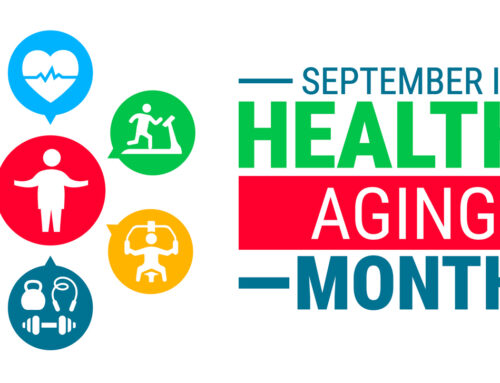How to manage with confidence, compassion, and comfort
In the United States, the estimate of seniors in elderly care institutions is about five percent. The Institute on Aging details that the other ninety-five percent rely on a mixture of family, friends, and paid assistance. It’s an uplifting picture that our society is caring for the elderly, and yet any necessary change of environment can be tough for seniors, regardless of the length of the care.
Whether it’s transitioning from a hospital stay to a temporary facility or back home, preparation and a period of adjustment may be required if your loved one has to move between care environments. Here are some suggestions on how to make sure the process is as smooth as possible.
Reassure them of their comfort and safety
If your loved one should need to stay in an assisted living environment for a while, it will have many of the benefits of home plus the advantages of having a dedicated staff on call should any problems arise. Assisted living is typically focused on helping a senior go about daily tasks while monitoring their condition. If there are any serious medical issues that arise, they may require hospitalization or a higher standard of care.
A nursing environment will ensure a level of care and expertise that not even the most dedicated family member can match. Whichever transition needs to made, it’s essential to take care of your loved one’s physical, mental, and emotional needs.
Involve your loved one as much as possible
Nothing will ease the transition into care more effectively than having your loved one involved in the process. They are the center of what you might call the Transition Team: everyone who plays a role in the process. Whenever a senior can influence a decision, make sure they’re given the opportunity to do so. When they can’t, keep them fully informed of developments.
It’s a natural reaction for seniors to feel that they are losing their independence. Overcome this hurdle by empowering them whenever possible. A sense of independence is especially important when a senior must transition into permanent care away from home.
Inventory and downsizing
Whether It’s a limited stay between care facilities or a permanent transition, it’s a great idea to make a list of everything your loved one will need in terms of medication and other vital items (a good example of being well prepared can be viewed here). When you’ve identified the essentials, you can get to work deciding which personal items can make the transition to the new surroundings to create a sense of belonging and calm.
Suggest an introductory visit to potential care facilities
If your Transition Team has a few potential care facilities in mind, ask your loved one if they’d like to go and see how a few of them operate. Any facility worthy of your consideration will gladly provide a tour and answer any questions you might have. Dropping by in person can help dispel any worries your senior may have, particularly if transitioning into care will be a long-term situation.
Familiarity works wonders
When the transition to care has been made, be sure visit as regularly as possible. A senior will be happy to see familiar faces, while the support group will be glad to see their loved one and know if they’re becoming comfortable. Make sure as many personal possessions as possible can make the transition to the new premises. The healing properties of a positive environment are well-documented, and beloved objects will go a long way towards making the new place feel familiar.
Bringing your loved one back home
Almost everyone, regardless of age, wants to get out of care as soon as possible. It’s often the case that a senior will have to undergo an initial hospital stay followed by a transition to a temporary care facility before finally getting home. And often, it’s necessary for care to continue at home to ensure a senior makes a full recovery while maintaining independence.
Proper home care even for a brief period helps seniors avoid being rehospitalized. And trained nurses or home health aides can provide compassionate, humane and professional care that can make these transitions as comfortable and healthy as possible. FirstLantic also provides Private Duty Nursing: a special level of care that can meet many seniors’ medical requirements without the need to be admitted to a nursing facility or a hospital.
Don’t forget to look after yourself
Even in the best of circumstances, a care transition can be difficult for a senior and the Transition Team. If you’ve been shouldering these responsibilities, FirstLantic is on your side. We’re dedicated to helping both a relocating senior and their support group deal with every care decision and move.
We have professional care managers who can craft a unique short or long-term care plan. Our social worker care managers can assist with budget preparation, provide you with supportive counseling, and coordinate with medical providers and other professionals.
Since 2000, it has been FirstLantic’s privilege to provide the highest caliber of service to our clients in Broward, Palm Beach, St. Lucie, Indian River, and Martin Counties. If you or your loved one are looking for home health care in South Florida, whether hourly, daily, or overnight, call us 24 hours a day at 1-877-618-3624 or contact us online.
 AVAILABLE 24 HOURS A DAY/7 DAYS A WEEK
AVAILABLE 24 HOURS A DAY/7 DAYS A WEEK Careers
Careers







